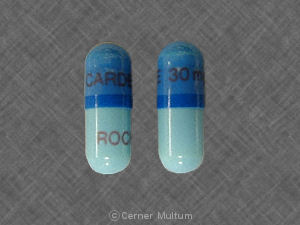Cardene Interactions
There are 492 drugs known to interact with Cardene (nicardipine), along with 6 disease interactions, and 3 alcohol/food interactions. Of the total drug interactions, 19 are major, 448 are moderate, and 25 are minor.
- View all 492 medications that may interact with Cardene
- View Cardene alcohol/food interactions (3)
- View Cardene disease interactions (6)
Most frequently checked interactions
View interaction reports for Cardene (nicardipine) and the medicines listed below.
- Accupril (quinapril)
- Aldactone (spironolactone)
- amiodarone
- amlodipine
- anidulafungin
- aspirin
- Ativan (lorazepam)
- baclofen
- Cardizem (diltiazem)
- CellCept (mycophenolate mofetil)
- clonidine
- Colace (docusate)
- Cozaar (losartan)
- dexmedetomidine
- dopamine
- epinephrine
- fentanyl
- heparin
- hydralazine
- Levophed (norepinephrine)
- lisinopril
- melatonin
- Nimbex (cisatracurium)
- pantoprazole
- Precedex (dexmedetomidine)
- propofol
- Seroquel (quetiapine)
- Tylenol (acetaminophen)
- vasopressin
- Versed (midazolam)
Cardene alcohol/food interactions
There are 3 alcohol/food interactions with Cardene (nicardipine).
Cardene disease interactions
There are 6 disease interactions with Cardene (nicardipine) which include:
- aortic stenosis
- cardiogenic shock/hypotension
- coronary artery disease
- liver disease
- renal dysfunction
- CHF/AMI
More about Cardene (nicardipine)
- Cardene consumer information
- Compare alternatives
- Drug images
- Side effects
- Dosage information
- During pregnancy
- Drug class: calcium channel blockers
- Breastfeeding
Related treatment guides
Drug Interaction Classification
| Highly clinically significant. Avoid combinations; the risk of the interaction outweighs the benefit. | |
| Moderately clinically significant. Usually avoid combinations; use it only under special circumstances. | |
| Minimally clinically significant. Minimize risk; assess risk and consider an alternative drug, take steps to circumvent the interaction risk and/or institute a monitoring plan. | |
| No interaction information available. |
See also:
Further information
Always consult your healthcare provider to ensure the information displayed on this page applies to your personal circumstances.


